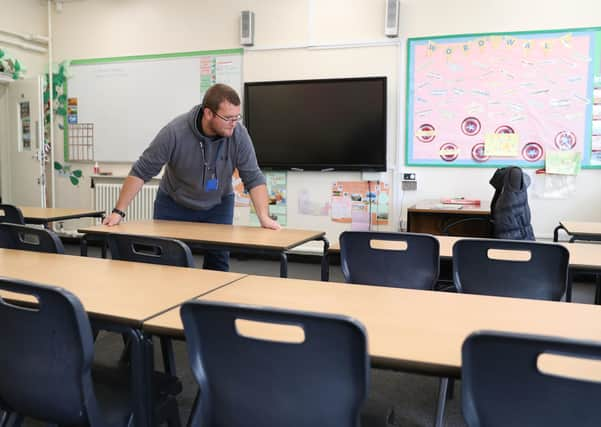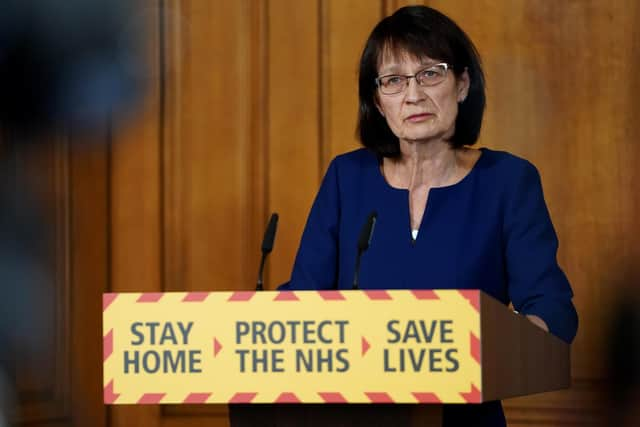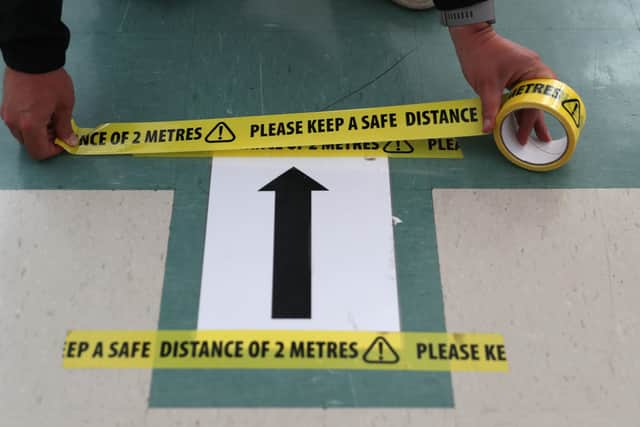Our schools are safe to reopen; now let’s get on with it – Bill Carmichael


In normal circumstances we do this every day almost without thinking, from the moment in the morning when we stick a big toe out from beneath the duvet, to the time 16 hours later when we turn out the light at night for a well-earned kip.
We know, for example, that electricity is extremely dangerous and touching that off switch carries a risk, particularly if it has not been wired correctly.
Advertisement
Hide AdAdvertisement
Hide AdAnd if we bothered to look up the statistics we would find that about 30 people are electrocuted in the UK every year.


But, in regular times, we weigh up the risks and the benefits of switching off the lamp and come up with a sensible decision.
And normally we do this dozens of times every day, because virtually everything we do in our lives carries some element of risk, from crossing the road to travelling by car or on trains, buses and planes, to eating a sausage roll from the corner bakery.
Risk of death is all around us. About 600 people a year die from falling down stairs, about 30 drown in the bath, on average about five die of bee or wasp stings and three die from being bitten by a dog. Around 400 die from choking on their food and up to 10 per cent of the 30 people a year struck by lightning will die.
Advertisement
Hide AdAdvertisement
Hide AdAnd some people actively court risk with dangerous and extreme sports. I know a keen skier who says he only feels truly alive when he is hurtling down a mountain through the virgin powder snow on a perilous and terrifying black run.


Every winter there are reports of skiers doing much the same thing, killed in the Alps in collisions or avalanches, and he shrugs his shoulders and says: “The risk is part of the fun.”
But that was back in the day when we all had a bit of common sense. Today Covid-19 has turned us into shrinking, snivelling, meek creatures who are terrified of our own shadows.
For example hospital admissions and deaths attributed to Covid-19 are currently at record lows in the UK and the chances of catching and dying from the disease are small, yet many of our fellow citizens are so terrified of the pandemic that they won’t even leave their homes, still less go for a pint or even a taxpayer-subsidised restaurant meal.
Advertisement
Hide AdAdvertisement
Hide AdAnd there are still many, in the teaching unions and among some parents, who are scared stiff of sending children back to school next week. I sympathise, but the truth is the risk is very low.
Sure, if you are vulnerable because of ill-health or have a compromised immune system, you will need to isolate yourself, but for the rest of us, particularly the young, there is absolutely no reason not to get out and enjoy yourself and go about your normal lives.
The idea that we should completely close down society until a vaccine is found – which could be years away – is frankly ludicrous.
This week a radio presenter berated a concerned father who wanted his children to return to school, telling him: “When a child dies, it’s on you.”
Advertisement
Hide AdAdvertisement
Hide AdThis is ridiculous. I’m in favour of allowing people to travel by car. Does that mean that if anyone dies in a road crash anywhere in the world that I am personally responsible?
In fact, according to the Deputy Chief Medical Officer, Dr Jennie Harries, pupils are more likely to be involved in a traffic accident on their way to school than to catch Covid-19.
Should we therefore ban the school bus? No, of course not.
Pupils have already missed almost half an academic year of schooling, and it is the most disadvantaged children who will suffer the most damage to their health, happiness and life chances.
It is essential that children go back to school next week. Certainly there is a risk and we have to evaluate it and manage it, and put in place sensible measures to keep pupils and staff safe.
Advertisement
Hide AdAdvertisement
Hide AdBut as Dr Harries added this week: “The long-term harms of children not attending school we think significantly outweigh those potential risks.”
Support The Yorkshire Post and become a subscriber today.
Your subscription will help us to continue to bring quality news to the people of Yorkshire. In return, you’ll see fewer ads on site, get free access to our app and receive exclusive members-only offers.
So, please - if you can - pay for our work. Just £5 per month is the starting point. If you think that which we are trying to achieve is worth more, you can pay us what you think we are worth. By doing so, you will be investing in something that is becoming increasingly rare. Independent journalism that cares less about right and left and more about right and wrong. Journalism you can trust.
Thank you
James Mitchinson
Editor
Comment Guidelines
National World encourages reader discussion on our stories. User feedback, insights and back-and-forth exchanges add a rich layer of context to reporting. Please review our Community Guidelines before commenting.